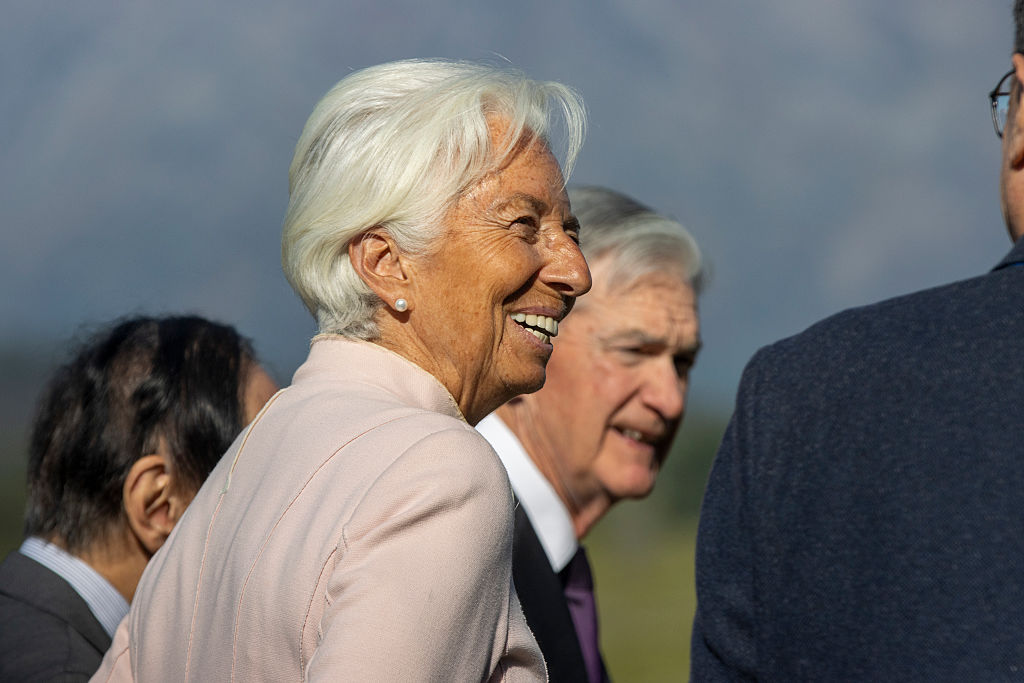Since December 2023, Poland has been living under a form of liberal autocracy, branded by Prime Minister Donald Tusk as “militant democracy.” Numerous state institutions have been unlawfully and forcibly seized, constitutional bodies independent of the left-liberal governing coalition have been blocked or ignored—all with the aim of eliminating from political life those politicians, experts, and social leaders who pose a threat to the left-liberal establishment and its networks of influence.
A striking example of this came in the latest actions of the Prosecutor’s Office, which has just filed indictments against former Minister of Defence in the PiS government and current parliamentary group leader Mariusz Błaszczak, as well as against Professor Sławomir Cenckiewicz—appointed only days ago as head of the National Security Bureau (BBN) and a close advisor to President Karol Nawrocki.
The timing of these proceedings, the nature of the charges, and the manner of their communication reveal what this really is: Yet another example of a political witch-hunt against conservative figures whose determination and activity have proven that they represent a serious threat to the globalist establishment, so often intertwined with Poland’s post-communist nomenklatura. The case itself accelerated during the presidential campaign, with the indictment coinciding with Cenckiewicz’s nomination as head of the BBN. It is difficult to avoid the impression that this move was intended to pressure the President not to appoint him. For Cenckiewicz, like the President himself, is a weapon of heavy calibre: A distinguished historian, formerly the head of the military archives under the PiS government, previously engaged in cleansing the security services of communist apparatchiks. He is also co-author, with Michał Rachoń of TV Republika, of the highly popular documentary series Reset, which exposed the Russian entanglements of Tusk’s team during his first government between 2007 and 2015.
And President Nawrocki himself, as head of the Institute of National Remembrance, demonstrated extraordinary determination in dismantling communist and Soviet legacies. For his consistently-executed programme of removing Soviet monuments, he has been pursued by Putin’s regime. The investigative division under his authority at the time was mobilised to prosecute communist crimes, including those committed under prosecutorial and judicial robes. All of this struck fear into the post-communist elites of the judiciary and the uniformed services—and with it came the desire to eliminate him.
The political character of the case becomes even clearer when one looks at the charges themselves. The Prosecutor’s Office accuses Błaszczak and Cenckiewicz of disclosing fragments of military planning documents—the so-called “Defence Plan on the Vistula line.” These were plans of defence in the event of a Russian attack from the East, which foresaw serious defensive efforts only on the Vistula line—effectively surrendering Poland’s entire eastern half. According to investigators, these actions violated the Law on the Protection of Classified Information and allegedly constitute offences under Article 231 § 2 of the Criminal Code (abuse of powers to the detriment of the public interest and for personal benefit) and Article 265 § 1 (disclosure of state secrets). Prosecutors maintain that the conditions for protection had not expired and that disclosure endangered Poland’s security and international interests.
But the decision to declassify fragments of those documents was taken in the proper legal form by the competent authority, the Minister of Defence. It is absurd to claim there was an “illegal” lifting of secrecy when the empowered official had issued administrative decisions to that effect, with the assessment of grounds resting squarely within ministerial discretion. Moreover, no damage can be demonstrated, since the disclosed materials were archival plans long devoid of operational value. The suggestion that national defence was endangered is rhetoric, not fact. Even more farcical is the claim that the accused obtained “personal benefit” in the form of media or political capital. Particularly egregious, in the eyes of any lawyer, is the charge of disclosing a state secret (Article 265 § 1), for once information has been lawfully declassified, it no longer falls within the scope of that provision. In plain terms, the legal elements of the alleged offence are missing.
Another scandal is the attempt to charge Professor Cenckiewicz, who at the time was merely performing his duties within the Military Historical Bureau, with “aiding and abetting” disclosure of state secrets. Under criminal law, aiding and abetting requires intentional, active facilitation of an offence, not the routine performance of professional duties. What we are dealing with here are historical materials, not current defence plans. To claim their disclosure endangered national security is baseless, a contrived political pretext.
This is not the first time the Prosecutor’s Office has stretched the law to serve political ends. The same pattern has appeared in the Justice Fund case, where abuse-of-powers charges were brought even though actions were taken within the scope of administrative discretion. Alleged “personal benefits” have been absurdly defined as nothing more than the satisfaction of supporting projects with a conservative or Christian profile consistent with one’s worldview.
In the case of the so-called “Vistula line,” the prosecutorial logic also collapses entirely. If the competent authority lawfully lifts a classification, then to speak of “disclosure of a secret” is nonsensical. The fundamental question is whether the Prosecutor’s Office has the authority to overturn a ministerial decision ex post in order to construct criminal charges simply because it disagrees with the rationale. Such a stance undermines the logic of administrative law itself, while the real purpose is to convert criminal procedure into a tool of political warfare.
This is, in truth, political vengeance. The exposure of “Tusk’s line of shame” dealt a heavy blow to his camp, revealing its true intentions toward Poland’s eastern regions. Let us add that these are provinces far more conservative than western Poland, provinces that under left-liberal governments have been systematically starved of infrastructure investment. The disclosure of defence plans dating back to Tusk’s tenure only confirmed to the people of eastern Poland that globalists regard them as second-class citizens.
The key to understanding this assault by the Prosecutor’s Office lies in Cenckiewicz’s role as a scholar of Soviet and Russian influence in Poland. His research, his record, and his resolve to put them to use make him especially dangerous for Tusk and Sikorski. President Nawrocki himself summed it up best when he declared that those who should be on trial are the politicians who wanted to hand over half of Poland to barbarians and oppressors, not Professor Cenckiewicz, who documented that betrayal,
In reality, Cenckiewicz not only broke no law—he acted in the interests of national security. The attacks on him are, in truth, attacks on the President himself and on the Polish raison d’état. A patriot and a scholar who for years has fought Russian influence, Cenckiewicz has thus become the “public enemy number one” for Tusk and Sikorski’s camp, men who were themselves carrying out Russian interests in Poland.
The truth is that Tusk and his team, in less than two years, have committed a series of unlawful acts and grave offences against Poland’s constitutional organs. They know that relinquishing power would mean long prison terms. Hence the desperate search for escape routes: Attempting to secure impunity for one of Tusk’s main enforcers, former justice minister Adam Bodnar, by promoting him to the post of Advocate General at the European Court of Justice, cloaked in judicial immunity; while Tusk himself lashes out with increasingly frantic persecution of the opposition. It is a race against time. His power in Poland is collapsing like a house of cards. A shift in Washington, the withdrawal of unconditional backing in Europe, and a succession of failures at home and abroad have revealed the naked truth: The king has no clothes.
Meanwhile, the machinery of the state lies in ruins. The middle and lower levels of administration and the security services are already looking to the return of conservatives. And the Błaszczak–Cenckiewicz affair is but another example of how law and state institutions are being weaponised for political ends, an abuse the vast majority of Poles will not accept.
Marcin Romanowski is a Doctor of Law, university lecturer, former Deputy Minister of Justice in the Law and Justice government, currently a Member of the Polish Parliament in exile in Hungary and Director of the Hungarian-Polish Institute of Freedom in Budapest





European Commission’s complicity in Poland’s constitutional breakdown